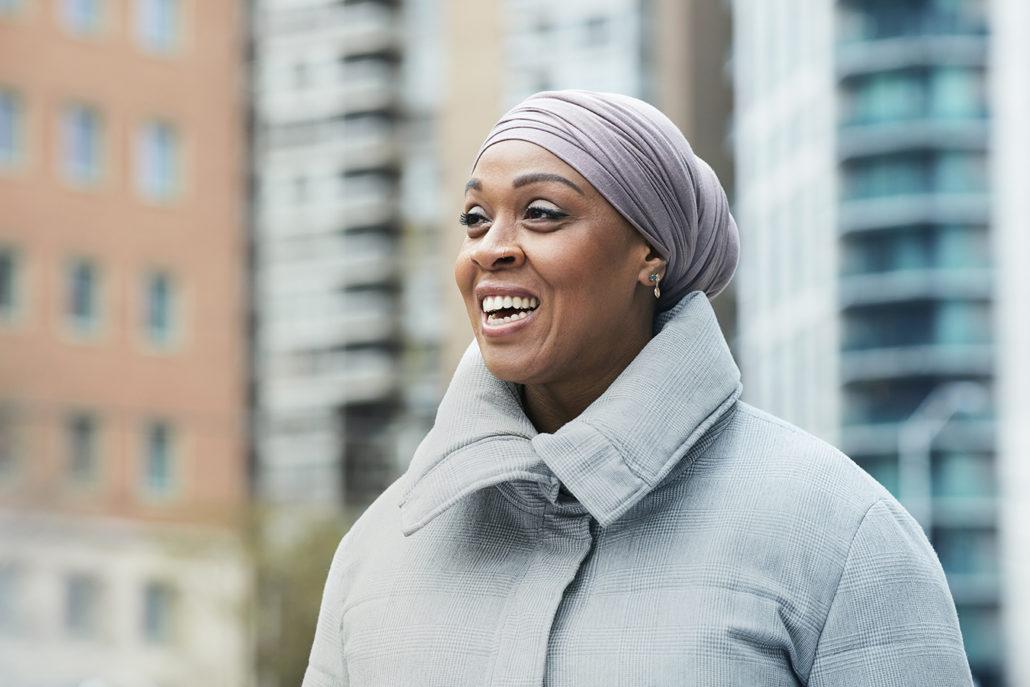
Dr. Fatimah Jackson-Best talks about challenges and solutions to meeting the mental wellness needs of a growing demographic in the GTA
About one in five Canadians are racialized yet, according to a Mental Health Commission of Canada study, the mental health needs of immigrant, racialized, ethno-cultural and refugee groups are not being adequately addressed. For many women of colour, stigma also remains a barrier to seeking services.
For racialized women, social issues such as racism, job insecurity and poverty can take their toll on mental health. According to United Way’s “Poverty and Employment Precarity in Ontario” report, racialized women with a university degree didn’t increase their share of secure jobs between 2011 and 2017, while the economy improved.
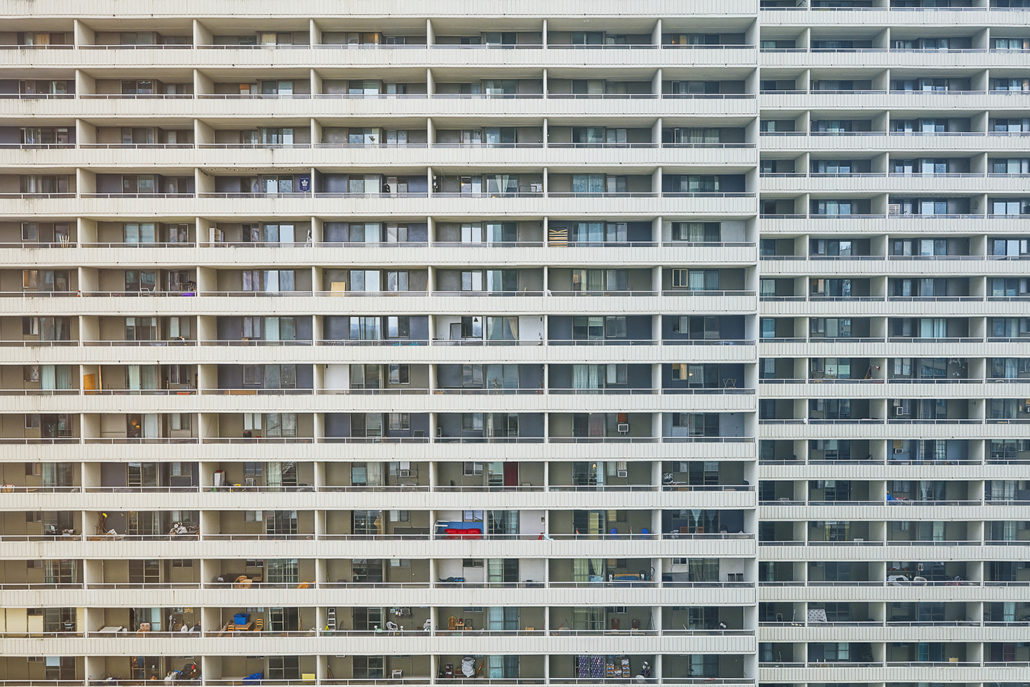
Public healthcare researcher and advocate Dr. Fatimah Jackson-Best is currently the Project Manager for Pathways to Care, a program aimed at improving addiction and mental health services for Black children and youth, and their families, in Ontario. Her PhD dissertation focused on the post-partum mental health of Black women in Barbados and she has done advocacy and community-based work both in Canada and the Caribbean.
We spoke with Dr. Jackson-Best about the importance—and challenges—of ensuring women of colour can access culturally appropriate services in the GTA.
What specific challenges do women of colour face in accessing mental health care?
One of the biggest issues is accessing good quality and affordable care from people who share your racial and religious background. The location of services can also be a barrier in smaller towns and cities. There’s a huge shortage of Black mental healthcare professionals in particular, and there’s such a high demand for them. It is critical for all healthcare service providers to understand how factors like culture, race, ethnicity and sexuality can impact a person’s understanding of and experiences with mental health and illness.
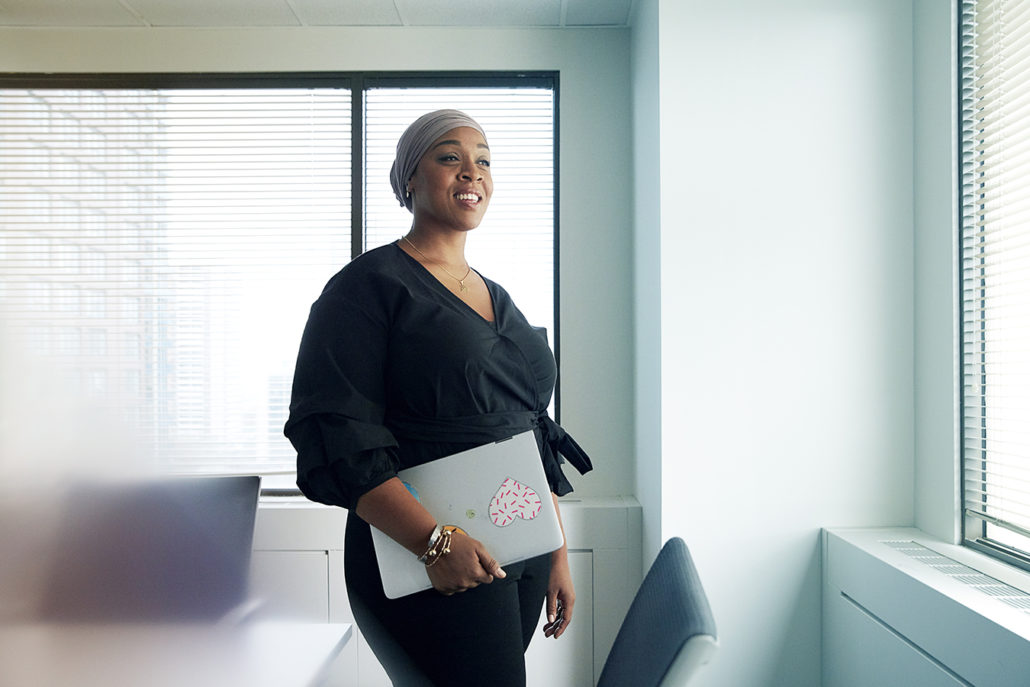
Why is this so crucial?
Spirituality, faith and religion are cornerstones of some people’s lives, similar to how race and culture are important parts of people’s identities. Unfortunately, religion can be manipulated to condemn or deny mental illness, which can worsen mental health symptoms and increase stigma. Having a mental health professional who is not only aware of your religious or spiritual beliefs but also shares them and is engaging with you from a non-judgmental place can be transformative.
Also, mental health and illness can be extremely difficult and layered experiences. Not having to explain to someone how racism or sexism exacerbates your mental health because they already understand what it’s like to be Black or a woman can make it easier for people to open up and receive the care they need.
Do you think that in some cultural communities there are stigmas around seeking professional mental health support?
I’ve worked in Black communities, Muslim communities, Black Muslim communities, LGBTQ communities and Caribbean communities, and stigma is continuously raised as a personal and collective challenge. The issue is such a large one, and we sometimes think that mental illness stigma is specific to our community, but, really, we are all struggling to work against discriminatory attitudes and ideas about mental illness.
How and why do you engage family members when girls and women are experiencing mental health challenges?
Bringing everyone in to support their loved one should be an important part of mental healthcare frameworks. At Pathways to Care, for example, our intention is to include families in the care of young women and girls. This can take the forms of family counselling, providing mental health information specifically for families, and engaging with families early on during mental health treatment. Families (biological and chosen) are crucial to creating supportive environments. By engaging family support systems, we can work towards continuity of care and even de-stigmatization.
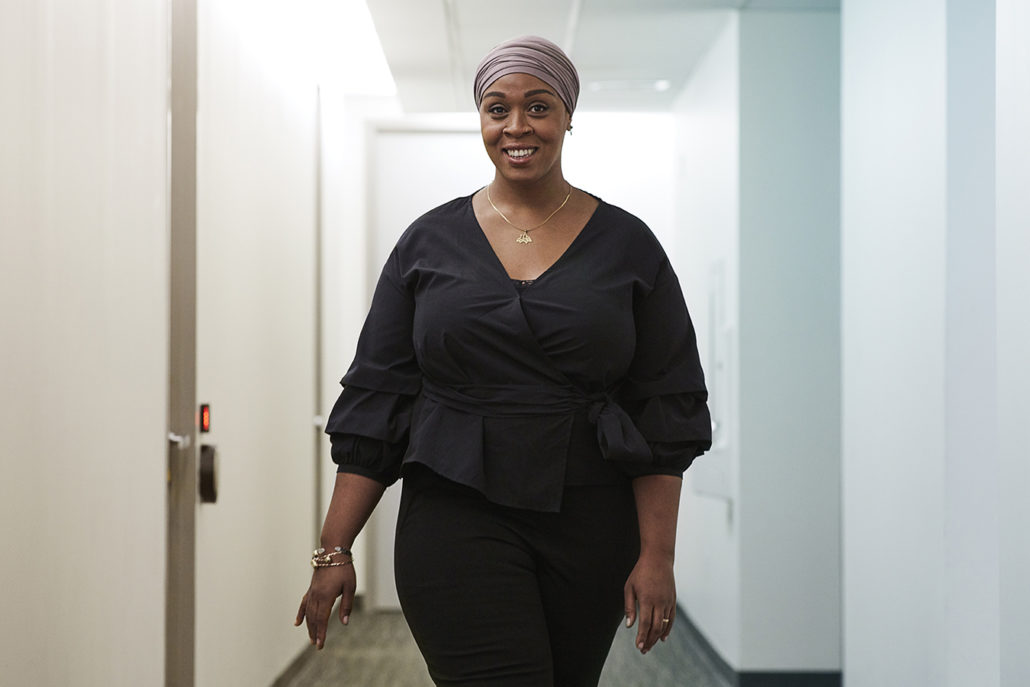
What challenges can women of colour face navigating the mental health system?
This is a hard question to answer because of a huge systemic issue: the lack of collection of race-based data across the province. But we do have anecdotal information, and it is very discouraging. Black women have been speaking about the lack of access to Black mental health professionals, lack of access to services in their neighbourhoods and areas, and lack of access to culturally safe mental healthcare for a long time.
Many women and girls arriving as refugees or asylum seekers in the GTA may have a trauma history and be experiencing culture shock and/or isolation. What are some of the interesting initiatives out there to support them?
Women’s Health in Women’s Hands is one of my favourite community health centres in Toronto. They work from a feminist and women-centered framework, do incredible primary health care and have a culturally adapted Cognitive Behavioural Therapy (CBT) model with the Centre for Addiction and Mental Health (CAMH), which has shown amazing results for women. The Executive Director of WHIWH, Notisha Massaquoi, is also a force and a woman I look up to.
Also, Elsie Amoako is a young woman who created an app called Mommy Monitor, which organizes customized care to give mothers the type of maternal health services they want and need. She has created an annual conference focusing on maternal health for Black and racialized women (Racialized Maternal Health Conference). Mommy Monitor also links women with free doula support and offers maternal mentor training and birth justice workshops. A lot of their work is free for women and could be of benefit.
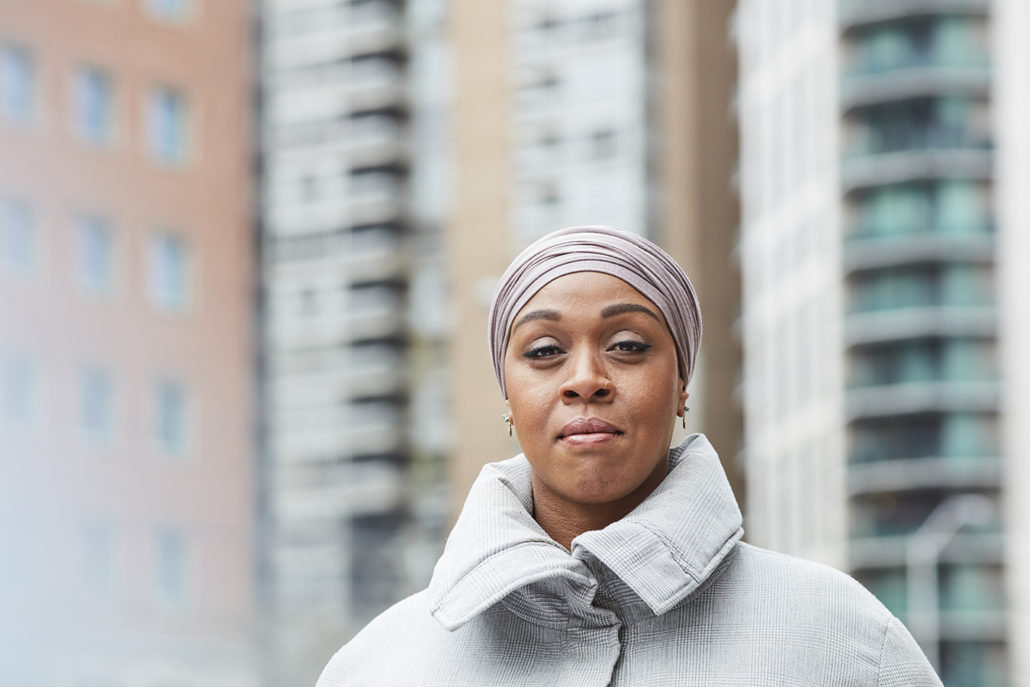
How can we, as a community, support the mental health and well-being of women of colour?
Working in mental health means interacting with people who are loving and well-meaning. A lot of us are dealing with similar issues right now and a lot of us are struggling to do well. We can support one another by being open and being vulnerable. We really need to be able to listen to one another and mentor one another to do this important work.